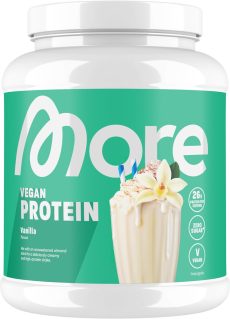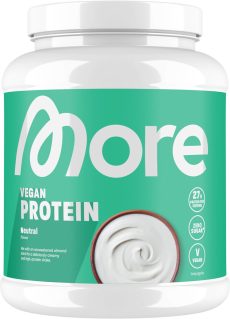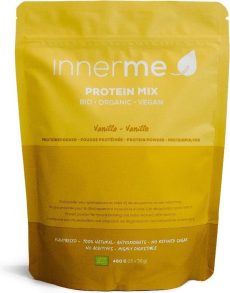Recognize the signs and discover what suits you
Not everyone reacts the same to cow's milk. Where some people tolerate a cappuccino or cheese toast just fine, others get tummy trouble, skin complaints or fog in the head. In this blog, we walk through the most common symptoms of cow's milk intolerance, how they arise, how to recognize them in your daily life and what you can do today. Down-to-earth, practical and with links to in-depth NooMooo blogs.
Note: I try to do as much research as possible, so you don't have to and find everything collected in one place. I am not a doctor and do not give medical advice. When in doubt, always consult with your doctor or dietitian.

What exactly is cow's milk intolerance
At cow's milk intolerance does your body respond sensitive to components from cow's milk, usually the milk proteins such as casein and whey protein. It is no allergy in which the immune system immediately sounds the alarm. The reaction is more subtle and often delayed. This makes recognition more difficult and symptoms more variable.
More basic reading: What is cow's milk intolerance and the distinction from allergy in What is the difference between cow's milk allergy and cow's milk intolerance.
In plain language
Cow's milk contains proteins, sugars, fats, vitamins and minerals. Some bodies especially find the proteins troublesome. You then get complaints after milk, yogurt, cheese or products in which milk is hidden. Not right away, sometimes only hours or a day later.
Symptoms by category
Everyone has their own mix. Below are common complaints, with examples from everyday life.
1. Abdomen and intestines
- Bloating
Like suddenly your belly fills up and your pants are tighter. Example: you have a latte and an hour later you look literally size bigger. - Abdominal pain or cramps
Searing or stinging sensation, often in the lower left or around the navel. May come immediately after a meal or later in the day. - Alternating stools
From softer and more frequent to just constipated. Sometimes alternating per week. - Nausea
Especially after creamy dishes such as cream sauce, cheese fondue or ice cream.
That's how you recognize the pattern: complaints after dairy and processed products with milk components. Tip: Record meals and symptoms in a simple diary.
Just in
-
MORE NUTRITION Vegan Proteine Poeder, Vanille, 600 g, 20 Porties – Lactosevrij – Plantaardig Eiwitpoeder – Gemaakt in Duitsland
€ 32,99 -
MORE NUTRITION Vegan Proteine Poeder, Neutraal, 600 g, 20 Porties – Lactosevrij – Plantaardig Eiwitpoeder – Gemaakt in Duitsland
€ 32,99 -
Innerme Protein Mix ‘Vanille’ – bio & vegan proteine poeder – 480g
€ 31,44
2. Energy and head
- Fatigue
Less energy after a meal with dairy. Your battery seems empty mid-day. - Concentration problems
You wander off faster. Where you normally work for an hour, you notice restlessness in your head after only 15 minutes. - Headache or migraine
In some people, dairy products are an obvious trigger. Timing may be delayed.
3. Skin and mucous membranes
- Skin rash or eczema-like appearance
Red, itchy spots that flare up after days with lots of dairy. - Pimples or acne
Especially around chin and jawline. - Stuffy nose or phlegm
Sometimes more snotty after cappuccinos or cheesy meals.

4. Other signals
- Restless sleep or rumbling bowels at night after a cheese board or pizza.
- Prickled feeling or short fuse, especially on days with multiple dairy moments.
Important: these symptoms can also fit other things, such as lactose intolerance or cow's milk allergy. That's why it's smart to test specifically what's at you plays. See the roadmap: How to test whether or not you can tolerate cow's milk well.
How do these complaints arise
The core is often in milk proteins. Your digestive system and intestinal barrier react to it sensitive up. This can cause local irritation, changes in the microbiome and thus complaints in the stomach, skin and energy.
More background: What are milk proteins.
In plain language
Compare your gut to a busier shopping street. Most people walk through without fuss. But when many people come in with large bags at once, it becomes too busy. The surveillance, your gut barrier, hits irritable. You can feel that as bloating, cramps or just being tired.

The difference with lactose intolerance
At lactose intolerance do you respond to the sugar in milk, the lactose. Due to too little lactase that sugar is not broken down properly, goes to ferment in the colon and that gives especially gas, cramps, a bloated belly and sometimes diarrhea, often already within 30 to 120 minutes After eating or drinking.
At cow's milk intolerance do you respond correctly to the protein in milk, the milk proteins such as casein and whey. This is not a classic allergy, but a sensitivity reaction which is a broader complaint picture can give, such as abdominal discomfort plus fatigue, headache, skin complaints or concentration dip, and those complaints come regularly delayed set up, sometimes not until hours or the next day.
In plain language
Lactose intolerance is a cutting problem in your small intestine. Cow's milk intolerance is a sensitivity problem for proteins.
Which products often cause complaints
- Fresh and creamy dairy: milk, cappuccino, cream, ice cream, cottage cheese, mascarpone.
- Cheese: mainly fresh cheeses such as young cheese and cream cheese are more likely to cause symptoms. In cases of cow's milk intolerance any cheese from cow's milk play a role, because proteins remain. Other types of cheese from sheep or goat, for example, can then. This is different than with lactose. See the nuance in Which cheeses contain high or low levels of lactose.
- Hidden dairy: stock cubes, cheese-flavored chips, sauces, cold cuts, cookies, bread, spice mixes, chocolate. Handy: Check the ingredient list.
In plain language
Sometimes milk clogged. In that case, the link to complaints is less obvious. That is why read labels really.

How to discover if your symptoms fit cow's milk intolerance
The most reliable way is structured testing.
- Rest period
Remove cow's milk and obvious lactose sources temporarily to your belly quiet is. - Targeted testing
Test lactose loose with a product that does lactose contains but no cow's milk proteins, for example, goats or sheep. Test milk protein loose with lactose-free cow's milk. This is how you test one variable at a time. - Record everything
Time, portion, complaints until next day.
Full explanation: How to test whether or not you can tolerate cow's milk well.
In plain language
Test pure so you know what triggers you: first the sugar, then the protein. Or the other way around. Not everything mixed together. Then you can choose purposefully what fits.
Common misunderstandings
- Lactose free means cow's milk free
No. Lactose-free says something about sugar. Milk proteins remain present. - Cheese is always a problem
Cow milk intolerance is all about the milk proteins and any cheese made from cow's milk can cause symptoms, even if it is old. Sheep's or goat's cheese has other proteins and is better tolerated by some. With lactose intolerance, fresh and young cheeses, in particular, are more likely to cause symptoms because they contain more lactose. - Plant-based milk is healthier
Vegetable is lactose and cow's milk free, but not automatically healthier. Look at nutritional value, additions and the sugar. - Lactic acid is milk
Lactic acid is usually lactic acid Of plant or microbial origin and contains no milk protein or lactose.

When to see a family doctor
- Severe or persistent symptoms.
- Unintentional weight loss, blood or mucus in the stool.
- Doubt between allergy and intolerance.
- With children (or for yourself), you can also always seek low-level advice.
For orientation, the difference clearly explained in What is the difference between cow's milk allergy and cow's milk intolerance.
Further reading on NooMooo:
- What is cow's milk intolerance
- What is the difference between lactose intolerance and cow's milk intolerance
- What is lactose intolerance
- What does lactase do
- Check the ingredient list
- Which cheeses contain high or low levels of lactose
Note: this blog is informational. I am not a doctor and do not give medical advice. If in doubt, contact your doctor or dietician.




Your reading tip for now
Blog Cow's Milk Lactose
Why your tummy might say 'no' to cow's milk
From lactose to protein and exorphins: this is what cow's milk does to your body Cow's milk. For the...
Aug
Blog Cow's Milk
What is cow's milk intolerance?
And why it is so much more than a bloated belly Cow's milk intolerance is a term that...
Jun
Blog Lactose
What does and how does lactase work?
And why your gut won't be happy if it's missing If you have lactose intolerance (or...
Aug
Blog Lactose
What is lactose intolerance?
Everything you want to know about this common complaint You eat a piece of milk chocolate or...
May
Blog Cow's Milk
What are milk proteins?
Casein and whey explained, from udder to intestines Milk consists not only of water and...
May
Blog Cow's Milk
What is the difference between cow's milk allergy and cow's milk intolerance?
And why it's important to know the difference Avoiding cow's milk is one thing....
Jul